Maria-Magdalena Mazepa: Politics and Sorcery in Ukraine
December 2, 2013
Current street protests in Ukraine about whether to pursue an EU integration pact or forge closer links with Russia are part of a long history of tension and accommodation between the two countries. The Ukrainian dilemma (East or West, Europe or Russia) is the background to a new article for Russian History from Liudmyla Sharipova …
The Reign of Edward II: Beyond the Legend
November 28, 2013
Edward II of England (whose tomb in Gloucester Cathedral is pictured here) is probably best known for the supposedly grisly manner of his death in 1327, which was said to have involved a red-hot poker and an intimate orifice. However, even though they generally agree that Edward was murdered in Berkeley Castle in that year, …
The Knights of Labor: An International Perspective
November 4, 2013
The Order of the Knights of Labor was the largest and most powerful organisation of American workers in the nineteenth century. Created by seven Philadelphian tailors in 1869, it was based on the fraternal practices and rituals of artisanal workers and secret societies such as the Freemasons. By 1886 the Knights and their assemblies, as …
Strongbow: the Anglo-Normans in Ireland
October 25, 2013
The first intervention of the Normans into Irish affairs resulted from a bitter local feud that, in 1171, allowed Henry II to become the first English monarch to set foot on Irish soil. This moment was portrayed by historians and writers of the early twentieth-century Irish national movement as a pivotal one: the first step …
Restoration Britain: A Post-Conflict Society?
October 10, 2013
The restoration of Britain’s monarchy in 1660 used to be thought of as just that, a return to social and political quietude after the tumult of the civil wars and Commonwealth. More recently, though, historians have shown that the restoration of the monarchy and the subsequent consolidation of royal power were by no means inevitable. …
Muslim Soldiers of France
October 1, 2013
In Rachid Bouchareb’s 2006 film Indigenes (literally meaning “natives”, but also the term for French colonial subjects – the film was released to English-speaking audiences with the more conventional-war-film title Days of Glory), four Algerian men, Yassir, Said, Abdelkader and Messaoud, sign up to fight for the Free French after the defeat of the Axis …
Public Opinion/Public Policy
September 6, 2013
According to Abraham Lincoln, “public opinion is everything.” A massive industry now exists to measure public opinion – organisations like YouGov, Gallup, and Ipsos MORI, as well as companies devoted to organising focus groups to test everything from instant soup to the policies of major political parties. And that is without mentioning informal (and misleading) …
The Chinese in Britain
August 5, 2013
In The Great Gatsby (1926), obscenely rich philistine Tom Buchanan obsesses over the latest racial theories, not least a book entitled The Rise of the Coloured Empires, by “this man Goddard.” This was a thinly-disguised reference to a popular work of 1920, The Rising Tide of Color Against White World Supremacy by the American writer …
The Cathar Heresy: Fact or Fiction?
July 17, 2013
In the 11th century, the Western Christian church began to act against “popular” heresy, that is to say, dissident religious movements involving people at many social levels. By the mid-13th century in France this effort had solidified into the series of courts and inquiries known as “inquisitions ” (medievalists no longer call this collection of …

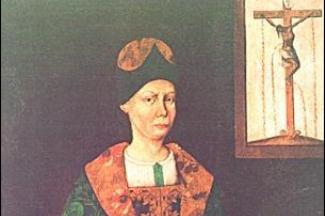
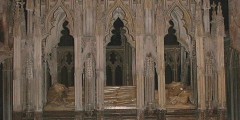
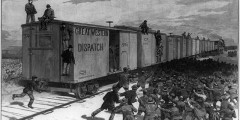
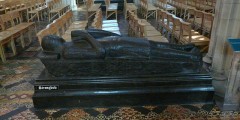
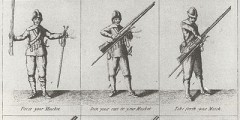
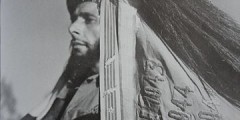
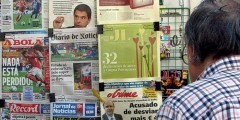
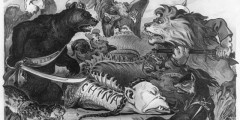

The Venerable Bede in European Context
November 19, 2013
The Venerable Bede (c. 673-735), monk, theologian and the first historian of the English people, lived at the monastery of St Peter and St Paul in Monkwearmouth and Jarrow in Northumbria on Britain’s north-east coast. While an earlier generation of historians tended to see Bede as living at the ragged edge of Christian civilisation, working …
comments 1
more...